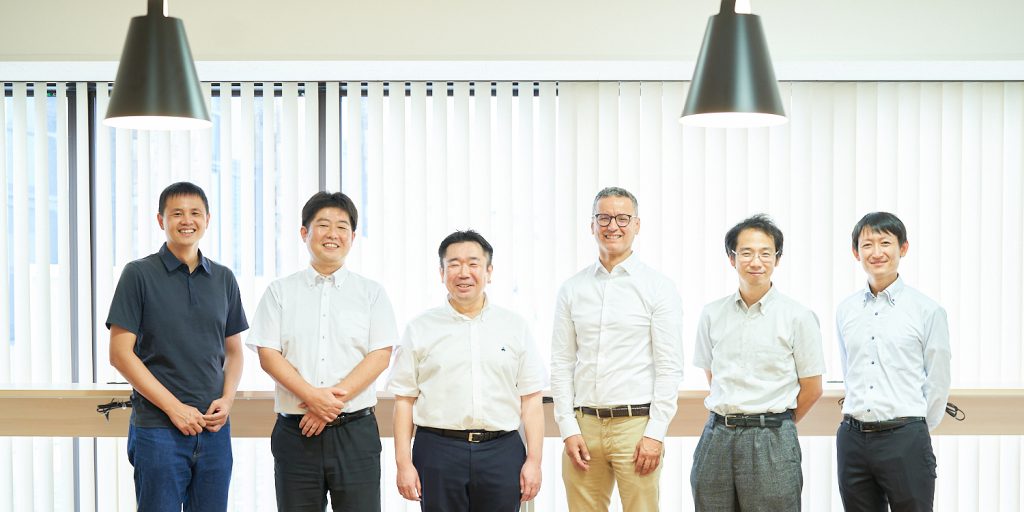Capture unit

Capturing CO₂ at room temperature using Moisture swing adsorption method
The technology for directly capturing CO₂ in the atmosphere is called "DAC," are developed in many research institutes.
The Capture unit in CRERC is studying "moisture swing adsorption method for DAC". The adsorption and desorption of CO₂ on the adsorbents are controlled by humidity.
When the absorbents is dry, CO₂ is adsorbed, and when the adsorbent is moistened with water, CO₂ is desorbed. The greatest advantage of this method is that can be performed at room temperature, dramatically reducing the energy required for CO₂ adsorption and desorption compared to existing methods.
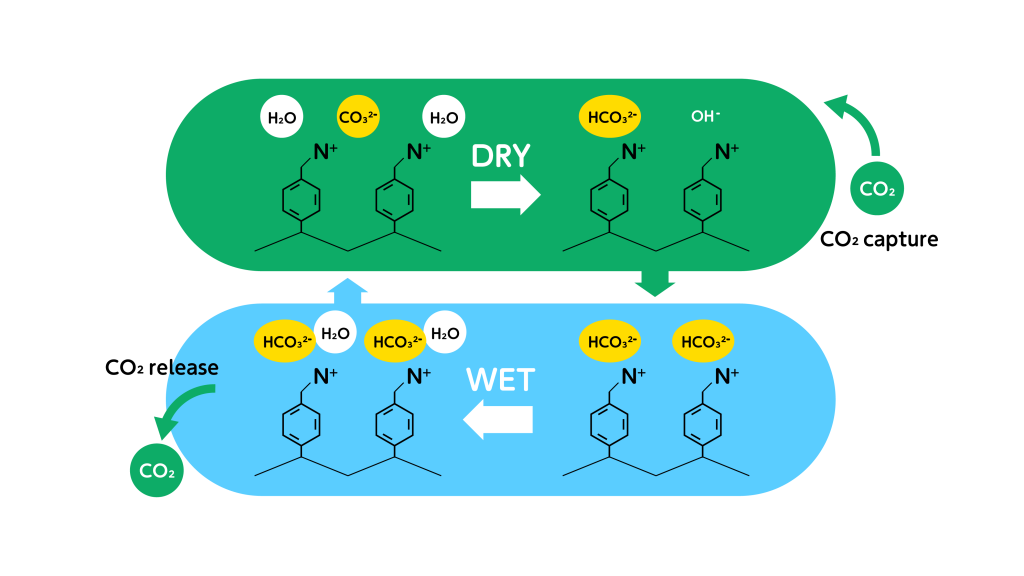
Currently, we are studying the adsorbents that can capture more CO₂ and faster using quantum chemical calculations and molecular dynamics methods. We are also conducting study on the chemical concentration and efficient capture of CO₂ emitted from factories and other sources.
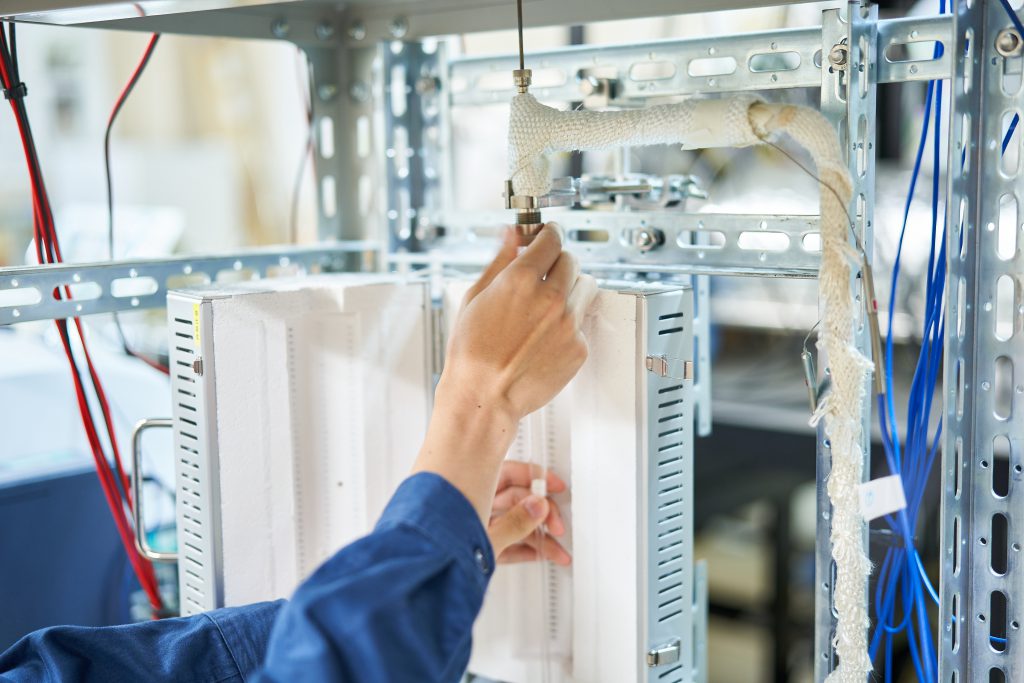
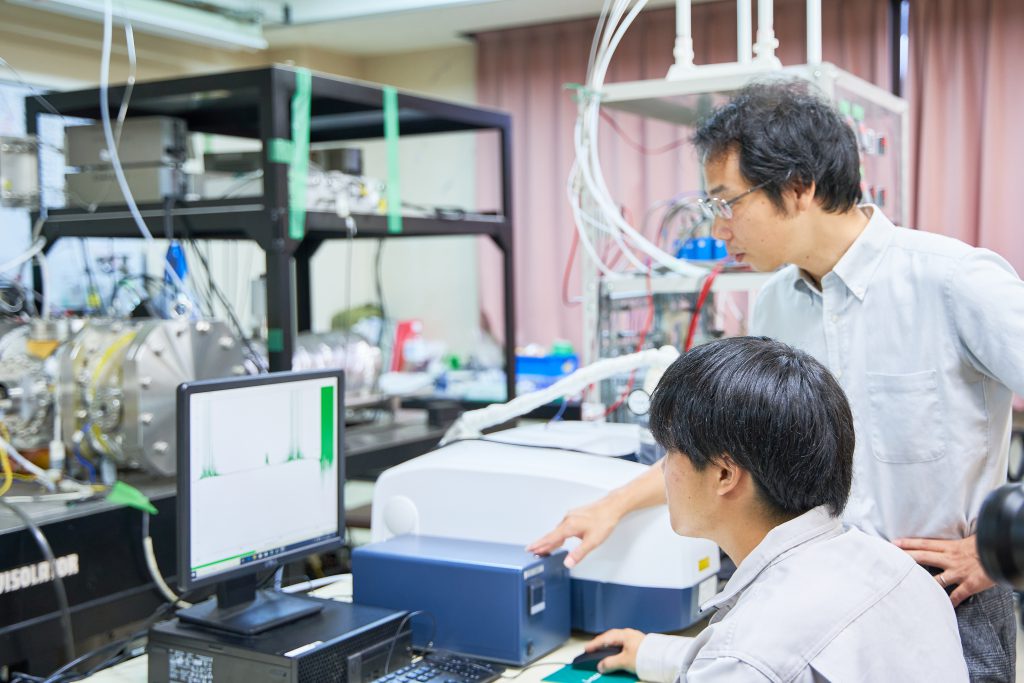
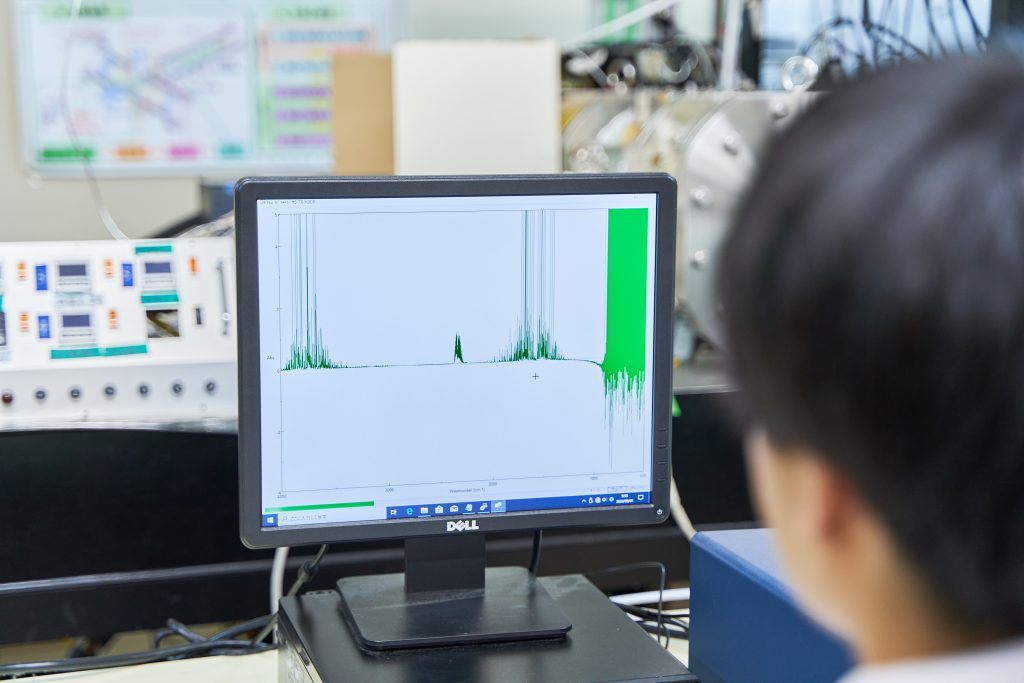
Synthesis unit
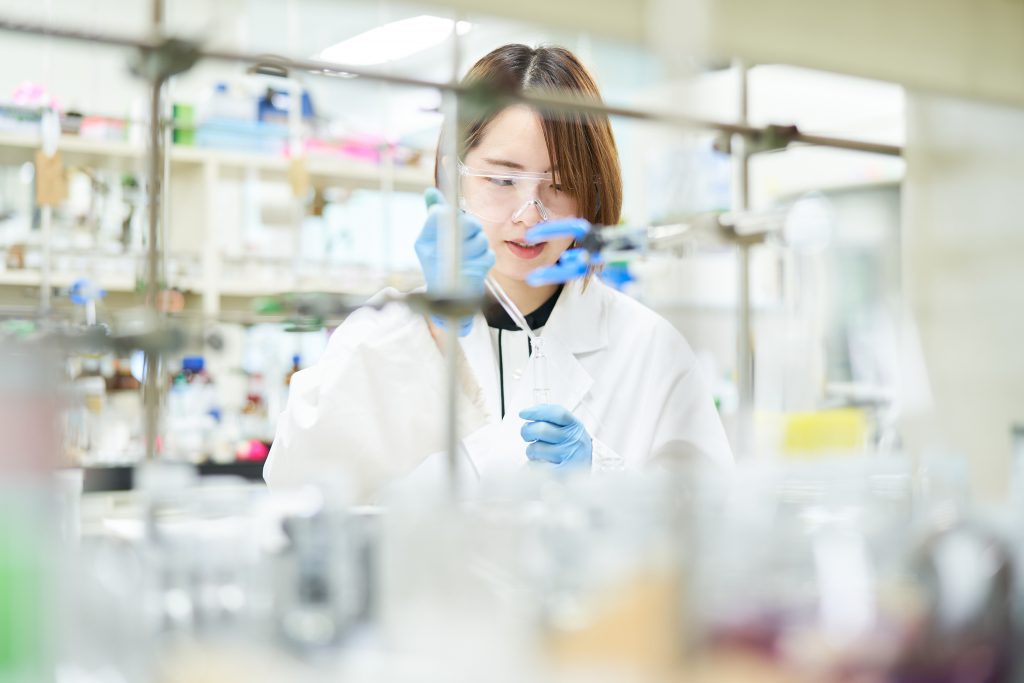
Development of catalyst for methanol
By synthesizing captured CO₂ as new e-fuel, CO₂ emissions can be reduced while using existing infrastructure without modification.
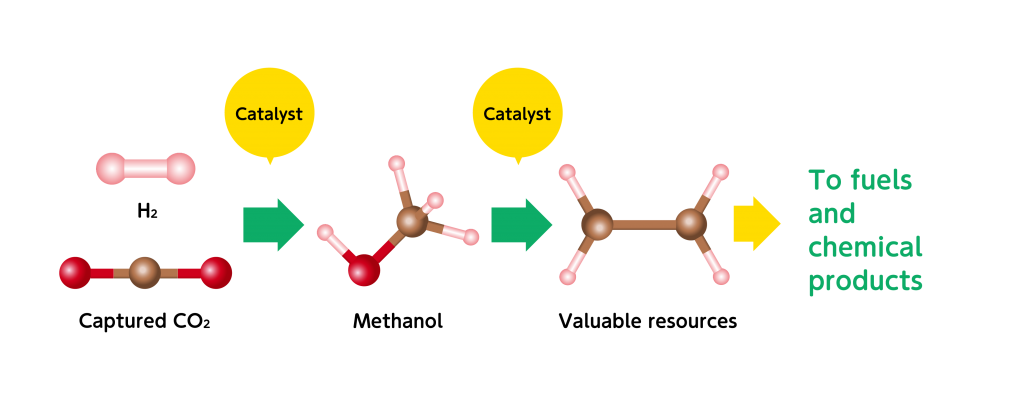
The CRERC Synthesis unit is studying to find the optimal catalyst composition for the highly efficient and selective synthesis from CO₂. Moreover, it is being developed to achieve higher performance.
In this study, the collaboration of "experiments" by experts in synthetic organic chemistry and polymer chemistry, and "computational science" by experts in physical chemistry proved to be highly effective.
In the future, we will continue to develop new catalysts by combining the fields of computational science and information science.

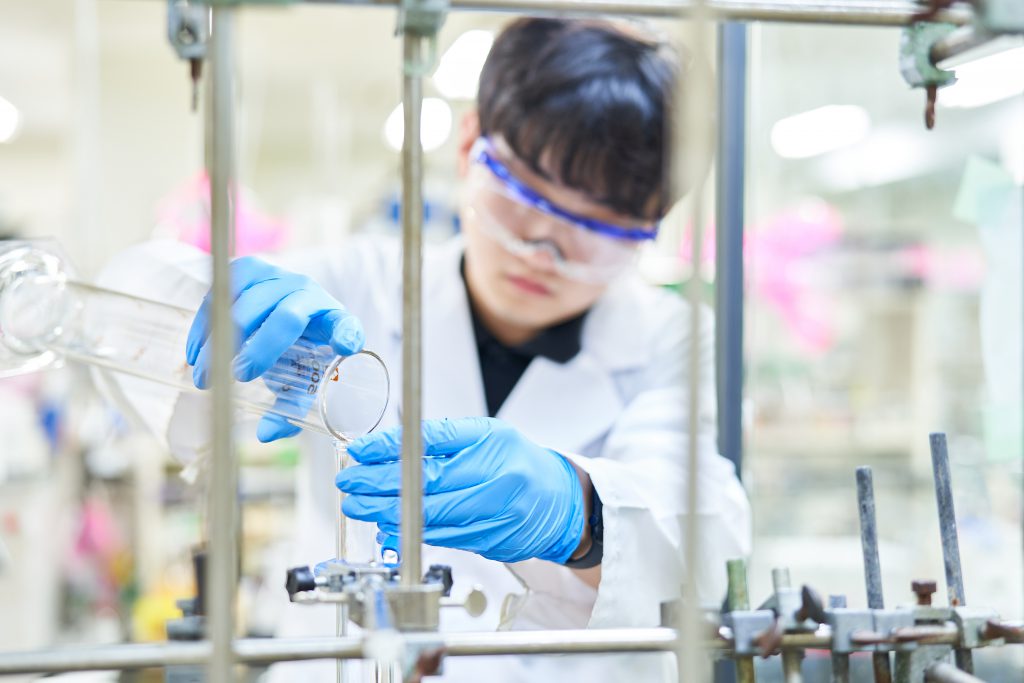
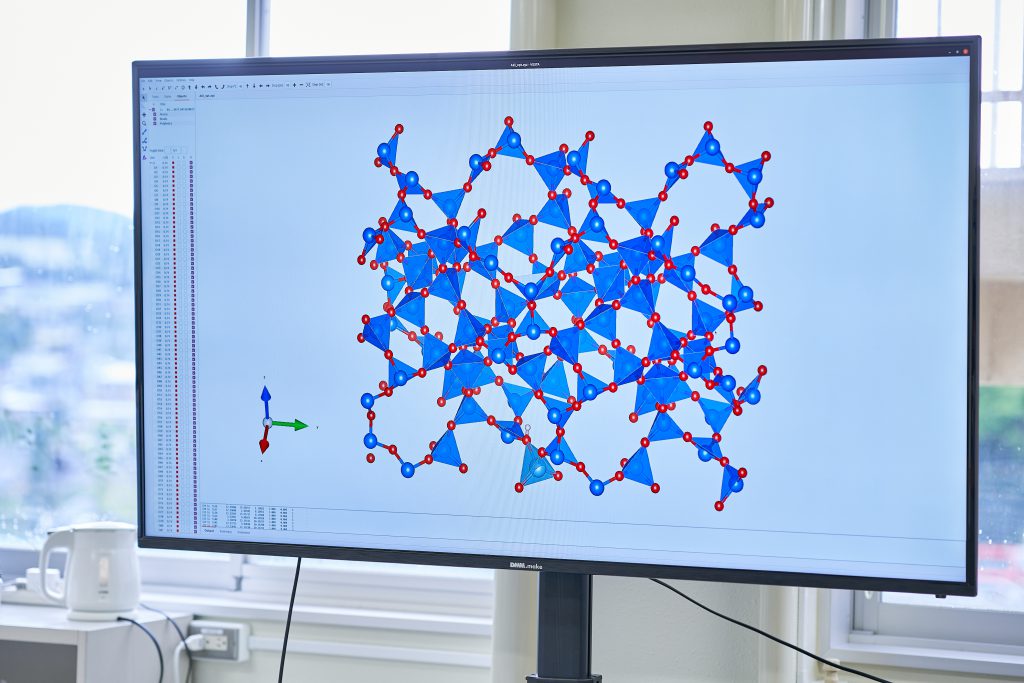
Utilization unit
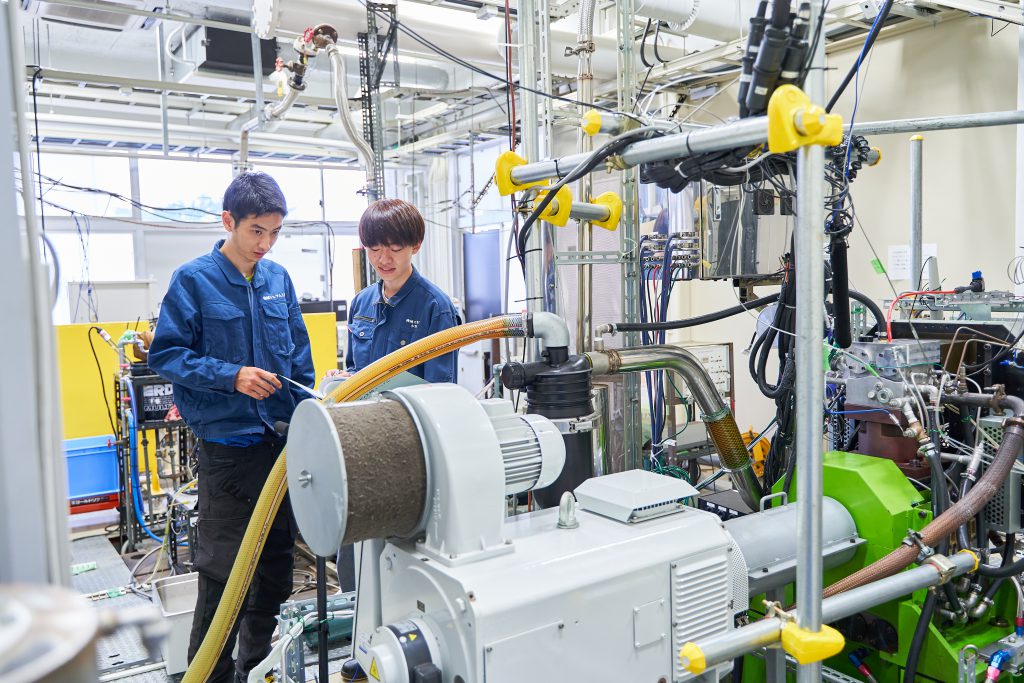
The only institution that study fuels and combustion in view of chemistry
The CRERC Utilization unit pursues an efficient use of the synthesized fuel. Due to energy density issues, converting energy sources into electricity and gas fuel is difficult in the aviation, marine, heavy transportation and heat utilization industries. Particularly in these fields, there are high expectations for e-fuels to be liquid fuels.
CRERC's ability to promote research and technology development from fuel synthesis to utilization is of great significance in this regard.
CRERC has one of the only four spark ignited engines in Japan capable of mixing and burning multiple types of gases and measuring their efficiency, providing a world-class research environment where we can conduct experiments from basic to applied on fuel utilization.


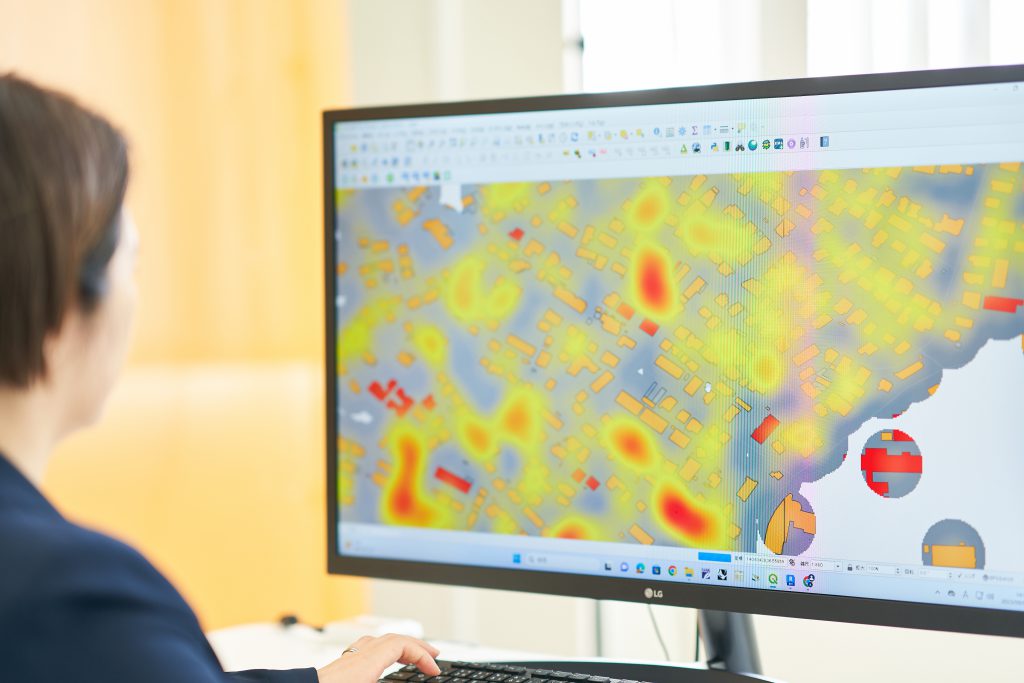
Open Science Unit
Promoting collaboration with companies and researchers in Japan and abroad
CRERC promotes basic research through international seminars and events in collaboration with its members, researchers, institutions and companies worldwide.
We will also be responsible for the creation of various ideas through education for students and the community.
we will focus on developing of human resources who can be immediately effective and creating an environment in which research and technological development can continue over the long term.
